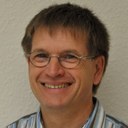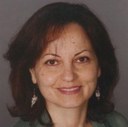Who are we?
Project Coordination
 |
Prof. Dr. Andreas MehlerResearch InterestsPower-sharing after peacebuilding, violent conflicts, crisis prevention, German and French politics in Africa Regional Focus: Central Africa, West Africa |
 |
Prof. Dr. Dieter SpeckResearch InterestsHistory of Southwest Germany with a focus on the late Middle Ages and early modern period, especially the History of the Anterior Austrian provinces and History of University. |
 |
Prof. Dr. Ursula Wittwer-BackofenResearch InterestsForensic Anthropology, Bioarchaeology, Skeletal Age Estimation, Global Health, History of
Health, Neonatal Risk Factors, Growth and Development
Connecting focus: Biological variability of humans in their natural and cultural environment |
Researchers
 |
Anna LagiaResearch InterestsBiological Anthropology, Bioarchaeology, Paleopathology, Taphonomy, Mortuary Practices, Inequality, Living Standards |
Contributing Institutions
Africa Centre for Transregional Research (ACT) |
The Africa Centre for Transregional Research hosts African researchers and aims to establish a differentiated image of African reality in the public sphere. It is a competence, service and information centre for European Africa Studies in teaching, research and innovation. With reciprocity of research as its guiding motive, ACT establishes a new form of cooperation between German, European and African researchers. |
Biological anthropology |
Biological anthropology deals with humans as a living part of nature in their dependence on their genetic predispositions, as well as modifying environmental factors, and can thus be defined as the study of the "biological variability of humans in their temporal and spatial extent". The research focus of biological anthropoplogy in Freiburg is forensic anthropology, which deals with the identification of living persons and human remains. This also includes provenance research, with which Biological Anthropology has contributed for many years to the clarification of the origin and acquisition of historical skulls stored in the Alexander Ecker Collection. |
Arnold-Bergstraesser-Institut (ABI) |
The Arnold-Bergstraesser-Institut (ABI) is one of Germany’s major research centers in the domain of both comparative area studies and transregional studies. As an independent, non-profit research institution, the institute cooperates with the University of Freiburg. The Institute was founded in 1960 and goes back to Arnold Bergstraesser, at that time Professor of Political Science and Sociology at the University of Freiburg. |
University Archive and Uniseum |
The University Archive is the central institution responsible for the records of the university and university hospitals. The archive records, evaluates and takes over written material of lasting value from all university institutions. In addition, the archive collects materials from institutions associated with the university, from associations, bequests of university members, and builds collections on university history. As a public institution, the Uniarchiv can be used by anyone who is interested. Since 2004, the Uniseum, the university's museum, has also been connected to the archive. According to the concept "Staunen - Forschen - Lehren", visitors can get to know the research work and teaching of the university from its beginnings in the 15th century until today. In addition to the permanent exhibition, the Uniseum owns numerous collections that arose from research and teaching that are not on display. |


